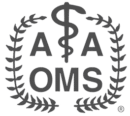Deep IV Sedation with Local Anesthetic
Medications are administered through an intravenous line (I.V.), producing a drug-induced depression of consciousness during which patients cannot be easily aroused but respond purposefully following repeated or painful stimulation. The ability to independently maintain breathing may be impaired and intervention may be required. Patients may require assistance in maintaining an open airway. Cardiovascular function is usually maintained. Supplemental oxygen is delivered through a nasal breathing apparatus and the patient’s vital signs are closely monitored. Medications most commonly used are Fentanyl (opiate), Midazolam (benzodiazepine), Ketamine, Propofol, Dexamethasone and Dimenhydrinate. The sedation agents used in treatment will affect your coordination, memory and judgement. Recovery from deep sedation takes approximately 24 hours and during this time you should not drive, cook, operate machinery, perform any strenuous or hazardous activities, drink alcohol or take any sleeping medications. An escort will be required for this type of anesthesia – if you attend without an escort, deep sedation cannot be provided.
Deep sedation is available for all types of oral surgery. Deep sedation may be necessary if local anesthesia fails to anesthetize the surgical site which often occurs in the presence of infection.










